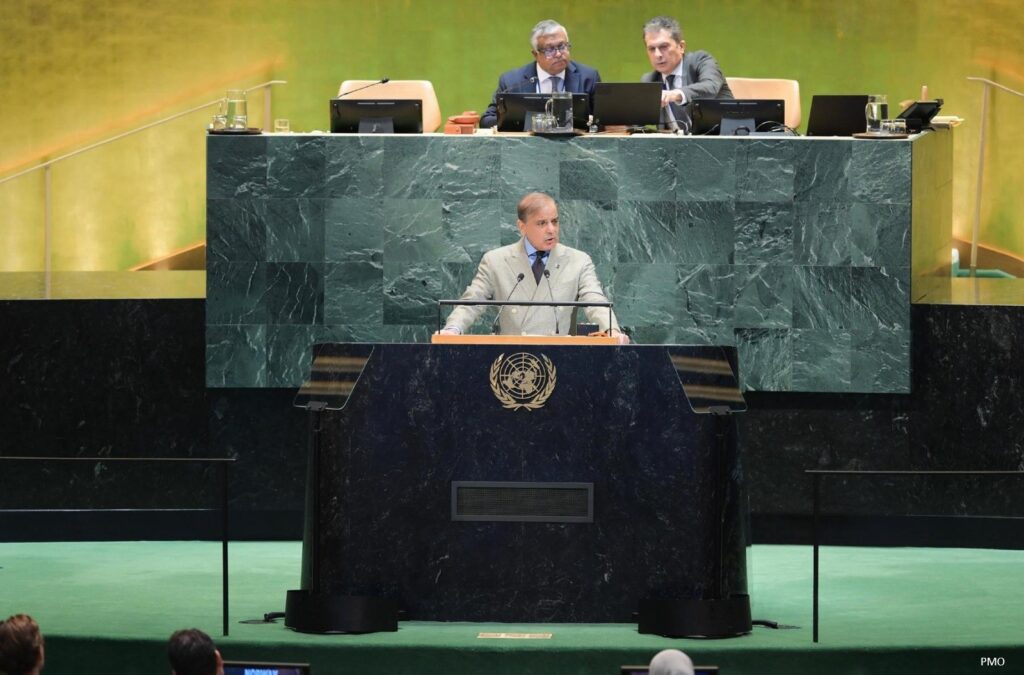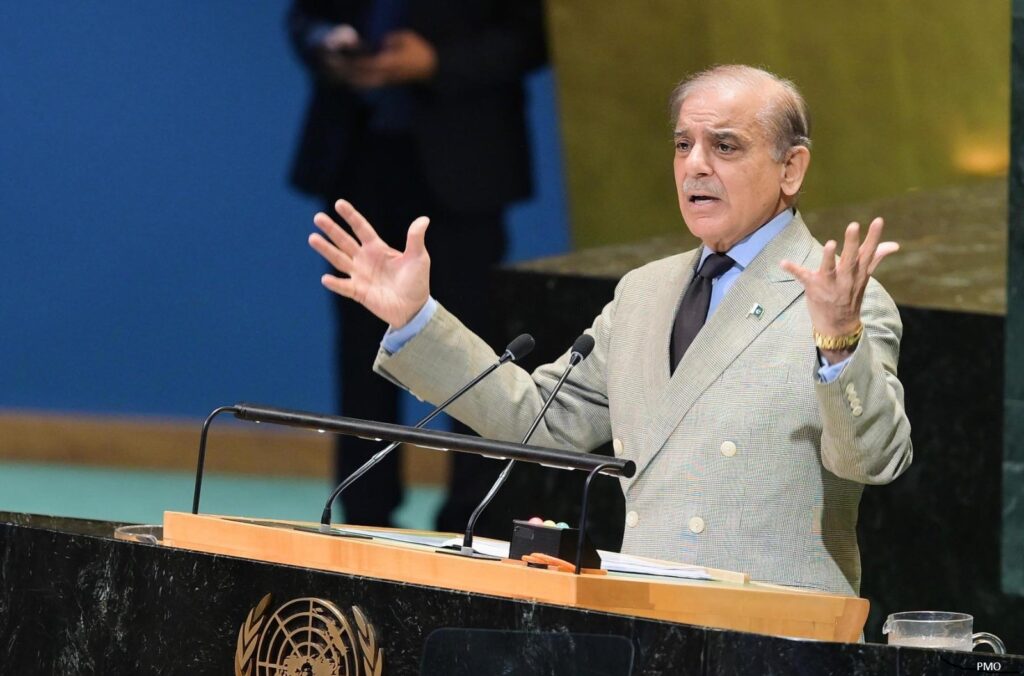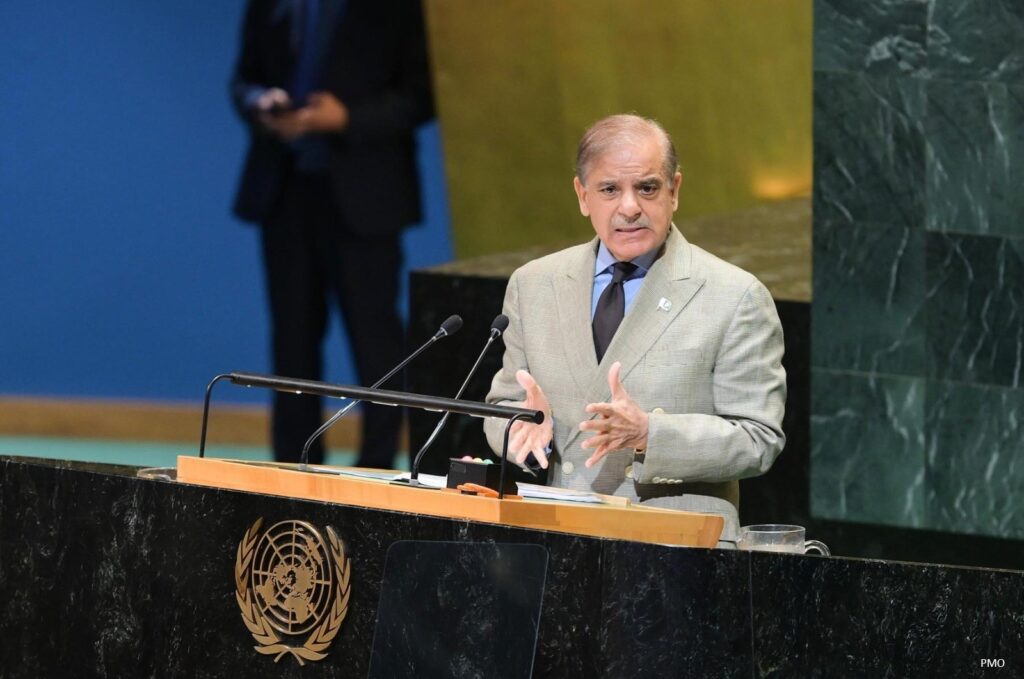APP

United Nations: Prime Minister Shehbaz Sharif, addressing the 80th session of the United Nations General Assembly (UNGA) on Friday, underscored Pakistan’s commitment to peace and dialogue while vowing to defend the country against external aggression and India’s unilateral moves on water rights.
In a 25-minute speech, the prime minister touched on national, regional, and international issues including the recent Pakistan-India war, Kashmir, Palestine, terrorism, Afghanistan, floods in Pakistan, and multilateral challenges.
South Asia Conflict and Ceasefire
Shehbaz recalled that Pakistan had confronted “unprovoked aggression” from India in May, crediting the armed forces under Field Marshal Syed Asim Munir for a “decisive response.” He said seven Indian aircraft were downed in a show of “professionalism and bravery.”
“Last year from this very podium, I had warned that Pakistan would act most decisively against any external aggression. Those words proved true,” he said.
He added that Pakistan, despite holding the upper hand, agreed to a ceasefire facilitated by U.S. President Donald Trump, whose “bold and visionary leadership” averted a catastrophic war between the two nuclear states. Pakistan has since nominated Trump for the 2026 Nobel Peace Prize.
Indus Waters Treaty
The prime minister warned against India’s unilateral attempt to suspend the Indus Waters Treaty, calling it an existential issue.
“To us, any violation of this treaty represents an act of war. Pakistan will ardently defend the inalienable right of our 240 million people on these waters,” he declared.

Kashmir Dispute
Reaffirming Pakistan’s stance on Kashmir, Shehbaz said India had tried for nearly eight decades to silence the Kashmiri people, but “tyranny will come to a grinding halt.”
He stressed that Kashmir’s inalienable right to self-determination must be realized through an impartial UN-supervised plebiscite.
Palestine and Global Crises
Shehbaz condemned human rights violations in Palestine, linked them with those in Kashmir, and said Pakistan stood for peace, justice, and humanitarian principles.
He also highlighted broader global challenges including intensifying conflicts, violations of international law, disinformation, climate change, and an escalating arms race.

Partnerships and Support
The prime minister praised diplomatic support from China, Türkiye, Saudi Arabia, Qatar, Azerbaijan, Iran, UAE, and the UN Secretary-General during Pakistan’s recent conflict with India.
“We have won the war, and now we seek to win peace. South Asia requires proactive rather than provocative leadership,” he concluded.























